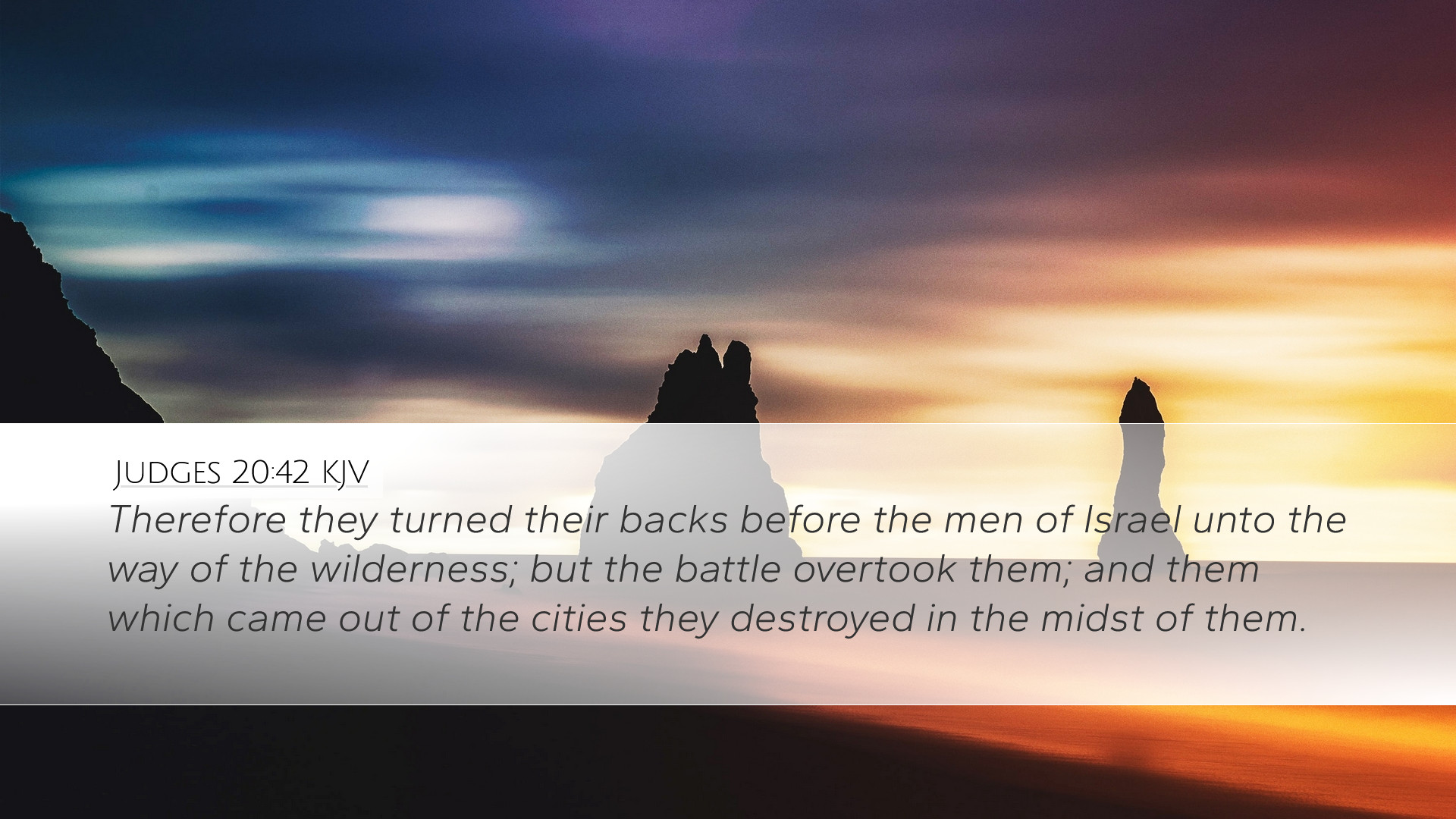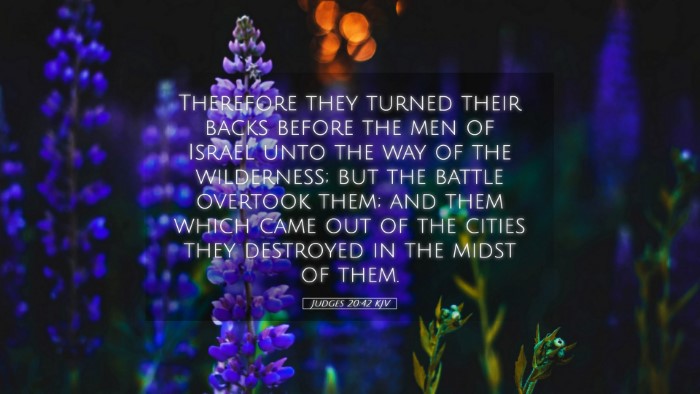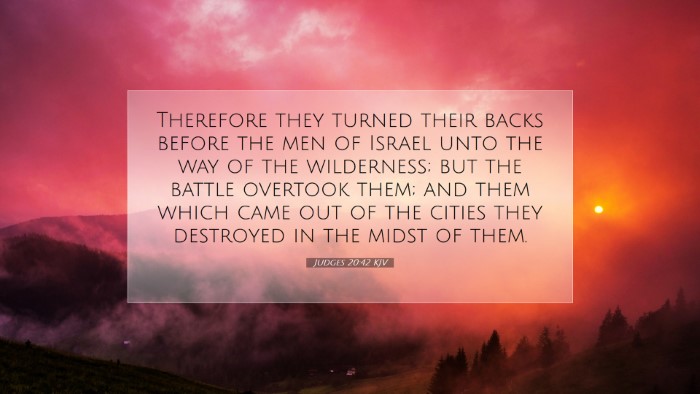Commentary on Judges 20:42
Judges 20:42: "Therefore the people turned to flight before the men of Israel unto the way of the wilderness; but the battle overtook them, and they were in the slain." This verse captures the decisive moment in a larger narrative, showcasing the consequences of conflict and divine judgment.
Context of the Passage
To fully appreciate Judges 20:42, it is essential to consider its context within the Book of Judges. This text narrates the events surrounding the civil war in Israel prompted by the wickedness of the tribe of Benjamin.
Matthew Henry in his commentary reflects on the moral degradation of the Israelites during this time, highlighting that instead of uniting against sin, they turned against each other. The grave injustice against the Levite's concubine triggered a nationalistic outrage that culminated in a bloody confrontation, demonstrating the danger of misplaced zeal and vengeance.
The Nature of the Conflict
Albert Barnes provides further insights into the dynamics of this civil strife. The Israelites, propelled by a desire for justice, mobilized against the tribe of Benjamin, illustrating both the potential for unity and the peril of internal discord. Judges 20 depicts the destructive nature of human conflict—how sin can warp alliances and lead to catastrophic consequences.
Analysis of the Flight and Pursuit
The flight of the Benjamites in verse 42 serves as a profound metaphor for spiritual retreat. Adam Clarke points out that their retreat into wilderness signifies not only a physical escape but also a moral and spiritual desolation. They chose a path of destruction that mirrored their state of sinfulness, illustrating a deep loss of favor with God.
The Role of Divine Justice
This passage also emphasizes divine justice at play. The pursuit of the Benjamites by the men of Israel, as pointed out by both Henry and Barnes, underscores the theme that unrepentant sin ultimately leads to destruction. The Israelites believed they were acting in righteousness, yet they were caught in a cycle of violence that God had permitted to display His judgment upon an obstinate people.
Theological Implications
Judges 20:42 has rich theological implications, particularly concerning the nature of sin, justice, and divine providence. It warns against the folly of internal strife, the perils of vengeance, and the catastrophic results of failing to uphold communal harmony and justice.
- Human Fallibility: The passage reveals how easily communities can be led astray by pride and anger, showing the importance of humility and reconciliation.
- The Pursuit of Justice: The Israelites’ pursuit of the Benjamites can be interpreted as a flawed human attempt to execute justice without divine guidance. This leads to excessive violence and loss.
- The Consequences of Sin: The destruction of the Benjamites serves as a somber reminder that unrepentant sin invites judgment, urging believers to examine their lives and communities for discord and rebellion against God's commands.
Practical Applications for Today
For pastors and theologians examining this passage, several practical applications emerge:
- Conflict Resolution: The need for wise and godly mediation in conflicts, emphasizing the importance of seeking reconciliation rather than retribution.
- Community Accountability: Encouraging congregational accountability and the pursuit of holiness within the body of Christ to prevent moral decline.
- Understanding Divine Sovereignty: Acknowledging God's sovereignty in human affairs, even during times of conflict, trusting His ultimate justice and mercy.
Diving Deeper: Reflection Questions
For personal study and group reflection, here are some questions that may be beneficial:
- In what ways does this passage challenge our understanding of justice and mercy within our communities?
- How can we guard against the dangers of internal conflict and strive for unity, particularly in challenging times?
- What steps can we take to encourage repentance and restoration rather than retaliation when grievances arise?
Conclusion
Judges 20:42 serves as a poignant reminder of the destructive nature of conflict and the necessity of seeking God's guidance in all matters. As observers of this historical narrative, believers are called to reflect on the broader themes of justice, communal responsibility, and the nature of divine judgment, ensuring that they strive towards unity in Christ, even amidst the complexities of human relationships.


